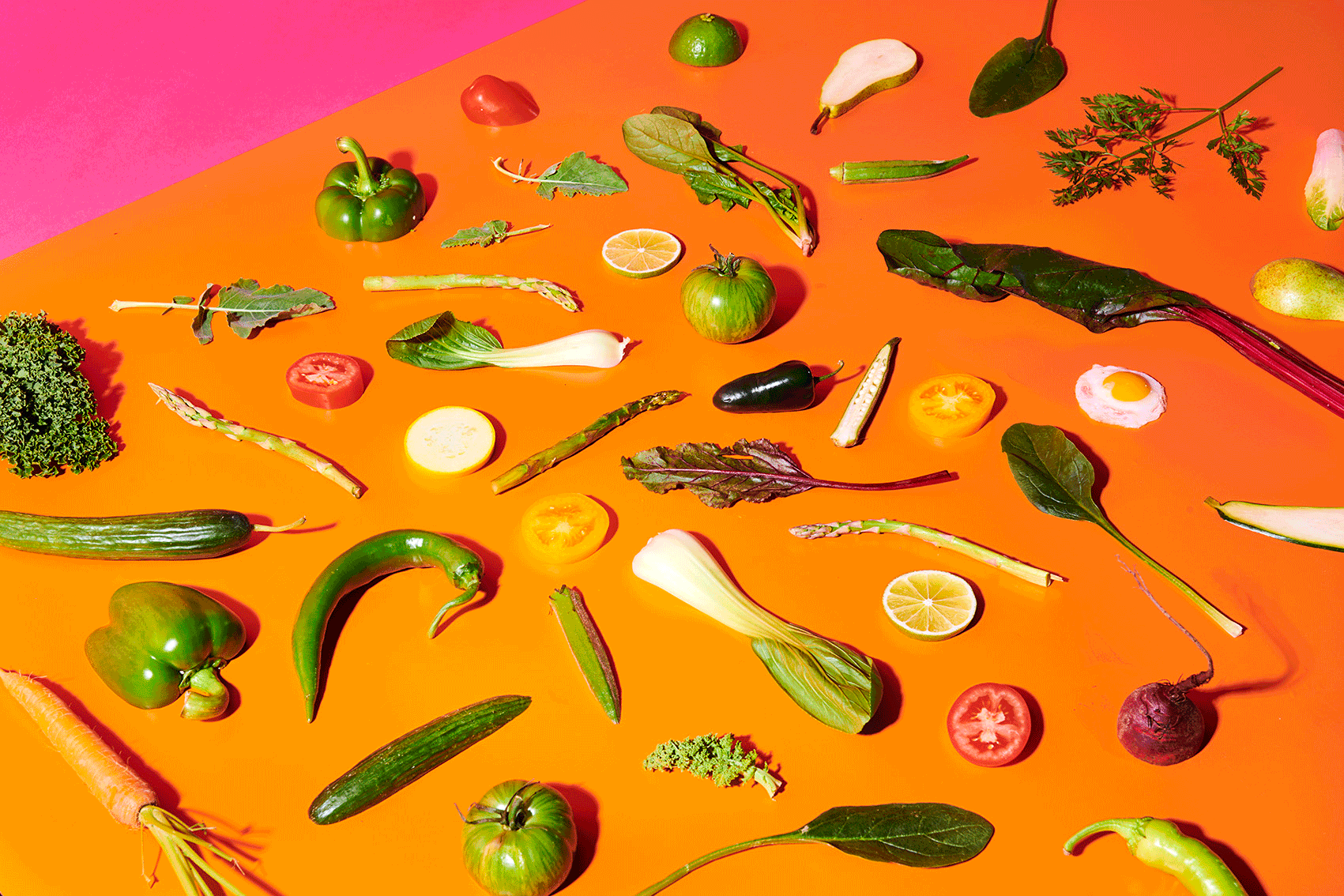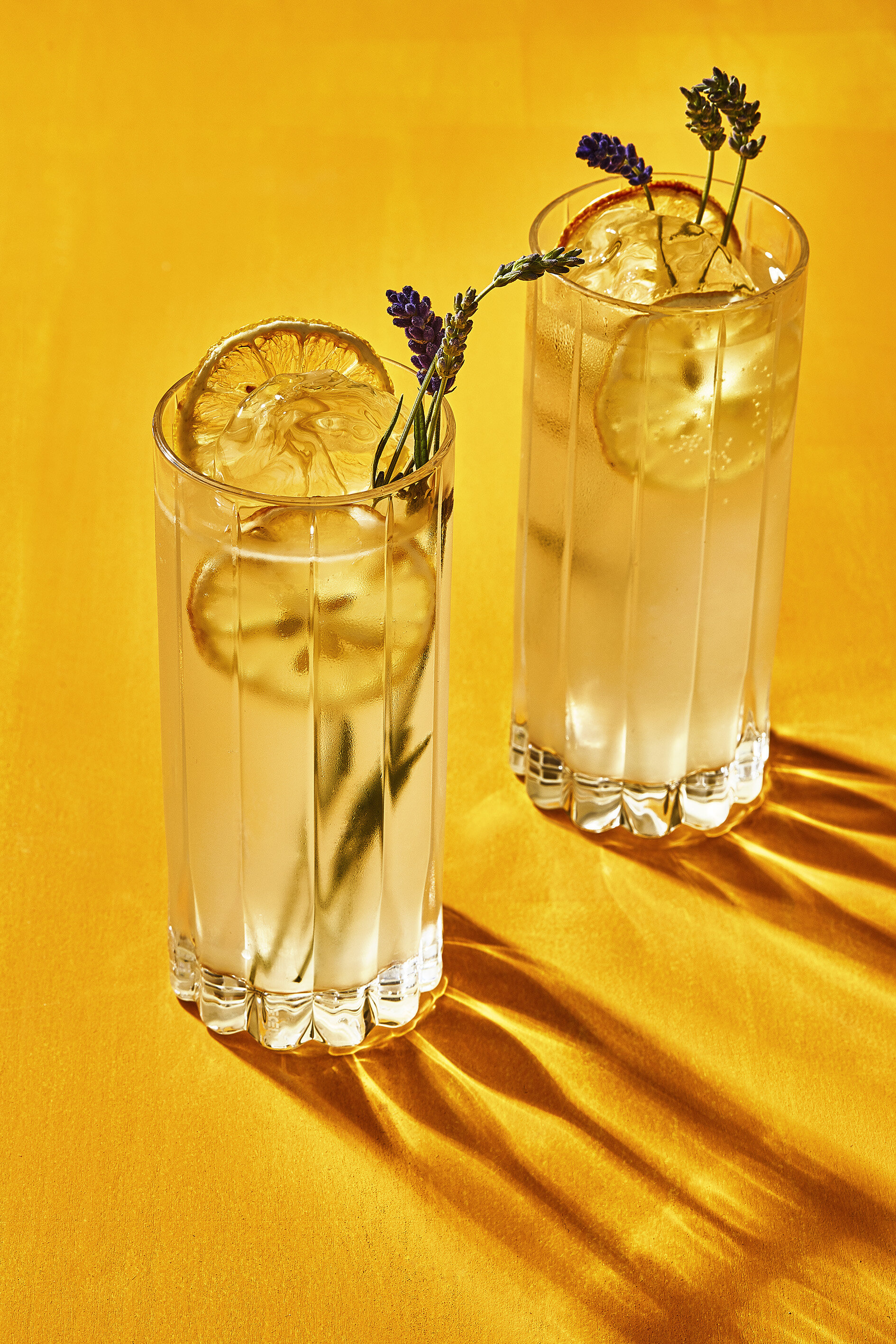COMFORTABLY NUMB. PHOTOS_ Tim Atkins, COCKTAILS_ Josh Macintyre, STYLE and WORDS_ Iain Graham
I have worked alongside some great bartenders over the years. I’ve loved the flavours and marvelled at the skills, the blending and balancing of tastes, acidity and sweetness, the endless lists of various spirits and bitters. Even now after 20 years or working in kitchens, mixing drinks is still alchemy to me. For the past couple of years, I have been pushing to make my work in both food styling and restaurant kitchens, more sustainable and more eco-minded. I am always looking to find an extra layer of sustainability – something that makes my ingredients a better product to buy. So how does the bar industry pursue sustainability?
Josh McIntyre currently runs the bars at Caravan Restaurants and has many years’ experience behind the bar. He is always looking for sustainable, ethical products. I asked him why so few bars are promoting sustainability when it’s an issue that so many bartenders are concerned about?
” I honestly believe that the biggest reason that more bars don’t shout about their sustainable practices is the simple fact that it’s not perceived as being sexy (which it totally is!). If you think about it, the most popular way to engage with the market is through social media and other online platforms, you need something that packs an instant visual punch to be seen and to try and stand out from the crowd. For most bars, that means a picture of some beautiful drinks in glassware, or healthy, beautiful people having the time of their lives. An article about their zero waste policy is more likely to be scrolled past. I’d love to see it simply be the norm, go into a bar, ask about their sustainability and be told. ‘Oh we’re a sustainable operator, everyone is.’ And for it just to be low key, the norm.”
So what can bars do to make their existence more green and planet minded? To start with, simply looking at what they are throwing out or what their kitchens are throwing out is a great start. Aqua faba, coconut husks, banana skins and veg trim can all be hacked to use in drinks. Oxidised wine, drip tray beer can all be used to make vinegars, cordials and syrups. Not only does this save waste but it can also make a bar owner money too. So why not?
The High Tide by Josh McIntyre
The eco tag for fashion and beauty products often comes with additional expense, usually because sustainable production methods are more labour intensive and involved. I assumed that drinks would be the same. With organic food being generally more expensive, would you be able to run a sustainable bar and make any money with the margins being so tight?
“My goodness, yes!” says McIntyre “The game-changing venue to prove this was ‘White Lyan’, opened in 2013 in London by operators Ryan Chetiyawardana and Ian Griffiths. It was zero waste and a roaring success, running for four years prior to being rebranded as part of the ‘Lyan Group’. Everything was pre-batched to avoid any waste production, there was no ice, nor citrus used, instead, desired dilution was designed and a combination of acids and vinegars, made in-house were utilised before drinks were refrigerated or run through cooler systems and served on tap. This led to a huge movement both nationally and internationally, with operators aiming to harvest as much as they could from their teams’ passion and desire to minimise their impact on the planet. Now, most reputable bars will employ, or have been influenced by the bar programme at White Lyan and a few other operators around the globe.”
This is music to my ears. Eco-conscious bars CAN work and can be massively successful. But while White Lyan might be the Heston Blumenthal of the drinks world, it represents a tiny slice of the bar community. Not every bar owner can set their sights or budgets that high from the outset.
“However more and more of the larger national operators are working with the Sustainable Restaurant Association (SRA) and other such organisations, who are driving lasting change by setting targets that are attainable for all,” says McIntyre. The past 24 months have been really big for sustainability in the bar industry. Many are now seeing the benefit of getting behind movements to limit and eliminate non-sustainable products like single use plastics and eliminating food waste.”. But aside from reducing waste in the bar day-to-day and being creative, the other ways of making drinks more “eco” is surely your produce.
The Karma Drinks Company portfolio
The Karma Drinks company started after a successful business of importing Fair Trade bananas into New Zealand morphed into taking on trying to beat the most successful drinks company in the world…. Karma drinks make cola, using real organic cola beans to flavour the drinks, but what really sets them apart is the Karma Foundation, an organisation which looks after the very community where they get their key ingredient, the cola nut. One percent of all revenue and not just profit, is donated to the foundation. This organisation, builds bridges, schools and helps the farmers create sustainable livelihoods for themselves.
“ We really believe that if we care about the people who produce the things we consume, that they in turn will care about us and help us respect the resources we use for future generations.”
Ironically, 99 percent of other colas sold around the world, no longer use the cola nut. Karma Drinks production is fully organic, so they adhere to the rigours of organic certified production which in turn ensures the rainforest around Sierra Leone is protected and not destroyed because of bad farming practices. Unlike their Cola competitors, Karma use only tin cans and glass bottles which makes their product more expensive.
“Yes we pay a premium but our consumers are willing to pay a fair price for products that align with their values.”
With no other drinks companies sourcing cola nuts from West Africa, Karma Drinks has found a unique way of satisfying our thirst for Cola but in a way that makes the process good for all. But are they worried about other firms copying their unique method?
“If the big companies did decide to use the real ingredient one day and in-turn that supported communities who grow Cola throughout West Africa then that would be a brilliant outcome. But for now, our way works for us and our partners in Sierra Leone”. Production has stretched to Orangeade, Lemonade, and Ginger beer, all of which have the same organic and Fair Trade status.
With soft drinks clearly able to tick some environmental boxes what of the harder and more traditional items in the bar – the liquors and spirits?
The East London Liquor Company (ELLC), the first distillery in east London for over 100 years, are making their eco practices make good business sense too.
“Spirits production generally isn’t a sustainable practice, so our goal is to do as much as we can to be as sustainable as we can. We recycle steam to our boiler, we send our spent botanicals to a food recycling facility, our grains go to feed horses and livestock; even the bar makes every effort to use every inch of the ingredients we buy in for cocktails.”
“I think in most cases it will cost you more to ignore, or outsource, the problem. As mentioned, we recycle steam used to heat the stills to make sure the boiler never has to heat from cold, saving on electricity rather than running it from supply each time. It would be prohibitively expensive comparatively, looking at the lifespan of the business, to not invest in that kind of system. In a very real sense not taking time to make production as green and efficient as possible is a false economy.“
ELLC distil, bottle and age on site in east London and make drinks that compete with imports, thereby reducing the carbon footprint. They work with wholesalers who are committed to delivering using greener transport. Their wide array of classic drinks and creative new blends makes them not only stand out, but makes them a single stop for sustainable spirits.
“As a brand we’re looking to make decent booze at decent prices for decent people. There are some amazing companies out there with great sustainability policies; I think once other companies see that consumers are using their purchasing power to choose sustainability, it will be a no brainer for them to change their practices.”
East London Liquor Company “Changeling”
East London Liquor Company “Dry London Gin”
The production of spirits and drinks is steeped in tradition – the flavours we all know and love are etched in to our palettes – so the industry needs some healthy disruption to improve the sustainability of production. And that’s exactly what Annabel from NcNean has done.
NcNean is one of new breed of whiskey distilleries, walking their own path and not following blindly the traditions of times past.“I realised that every distillery we visited was basically telling us the same thing – we’re doing things the way they’ve always been done. And I just thought that was crazy – surely things must have moved on in the last 50 years and there must be better ways of doing things? And what about sustainability and trying to reduce the carbon footprint? No one seemed to be thinking about these things.”
After a two year search for investors, NcNean was born, but the key to their success and sustainability is their process. They are the first 100 percent organic distillery in Scotland, buying organic barley to support biodiversity and waterways around the farms they buy from, using 100 percent renewable energy and recycling their cooling water, by building a massive pond rather than chemical cooling, or drawing water from a river. They will also be using a 100 percent recycled clear glass bottle for their first whiskey later this year when it’s released. For whiskey to be whiskey, it must sit and mature for at least three years, and in the meantime NcNean haven’t been sitting on their hands: they have produced a botanical spirit, which is a cracking substitute for the long-awaited first whiskey.
NcNean Limited Editions Bottles 607
NcNean Botanical Spirit
For NcNean it’s generally, a lot more expensive to make their Whiskey, Bourbon, Vermouth and botanical spirit sustainable.
“Some of our decisions save us a bit of money (like the cooling water) but organic barley is about 40-60 percent more expensive than normal barley and things like the biomass boiler cost us £500,000 to install, versus more like £100,000 for an oil boiler.”
But it’s by no means a finished effort, the company is still striving to improve and refine its impact and sustainability. “We’re working at the moment on finalising our first carbon footprint and that has thrown up a few more areas for us to address, most specifically the carbon generated by fermentation, which, if we’re honest, we hadn’t given enough thought to until now – so that is our next project!”
For me it seems that drinking ethically is completely possible and within reason it could well be more economical for the drinks companies to make this a standard rather than an eccentric niche range of products. What seems clear is that thought and consideration are paramount in making these products but also the determination to stick to the task and make it happen are just as important.
The Bitter Pill by Josh McIntyre
Lemony Karma High Tide by Josh McIntyre









